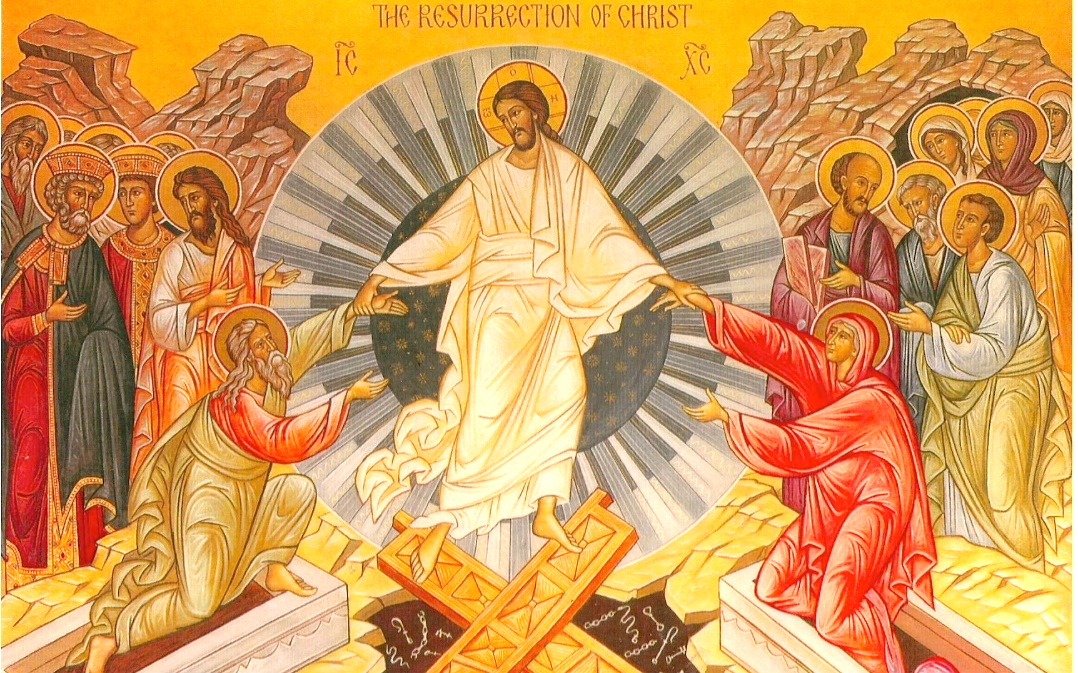Bethlehem Lutheran Church, Lebanon, OR
Reformation Sunday + October 27, 2019
Text: John 8:31-36
We’re accustomed to evaluating things on the basis of what we can see. If you go to the dentist, how good or bad your teeth are can be observed. If you’re buying a house, the home inspector looks for red flags of what could be a serious issue.
But how can you tell if someone is a slave? You’d look for a master, a contract establishing their right of control, some kind of power relationship of obedience that they’re locked into. What if you can’t see these things with your eyes or feel them with your heart…or what if you can sense them, but you don’t know what to call it? That’s the way it is with slavery to sin. There are no signs that are obvious to us, except the one that comes too late to do anything about, which is death.
Jesus speaks to those who believed in Him, but they are still very weak in that faith. Jesus offers liberty, and they say they’re already free. On what basis do they say that? Because they don’t have a master to face with threats and whips? Are they free in that they decide where to go and what to do? What they don’t yet understand is that every person is born a slave with sin and the devil as their masters. How can you know this? There may be signs here and there—a bad behavior you can’t kick, periods of doubt, various ways you’ve hurt others. But only a holy God can truly expose your slavery, and He does that by His Word.
The Reformation was a glorious event in Church history because, together with the Printing Press, it meant that more people than ever before would be able to read God’s Word for themselves. Sometimes this is pictured as a great “liberation” from the hierarchy and control of the Roman church. But in fact, it meant greater liberation from sin and the devil’s absolute power over humanity. Romans 5:14 says, “Death reigned from Adam to Moses, even over those whose sinning was not like the transgression of Adam.” This reign of death was disrupted because God gave Moses the Law, the holy Word which exposes and identifies the marks of sin’s bondage. Death reigns through the ignorance of God’s Word, and reigns unchallenged, so long as we believe the scientists today who tell us life is no more than chance chemical reactions.
When the whole Word of God was put into the hands of many, it had a liberating effect. It exposed the ungodliness of paying indulgences for forgiveness, refusing people the Blood of Christ in Communion, praying to the saints, forbidding marriage to priests, requiring penitents to list every sin in confession, and compelling people to fast on certain days. The Reformers studied the Scriptures and found that in fact they preached against putting our trust in man’s works or teaching as doctrines the commandments of men. “If the Son sets you free, you will be free indeed!”
It’s easier to put your finger on what bondage is once you’re freed from it. Take, for instance, when the children of Israel were brought through the Red Sea. They had languished under heavy burdens laid on them by cruel Pharaoh, and now they were freed—The Song of Moses declares, “I will sing to the LORD, for he has triumphed gloriously; the horse and his rider he has thrown into the sea.” (Exodus 15:1)
Yet, three days into their wilderness journey, those same people started complaining: “The people grumbled against Moses, saying, ‘What shall we drink?’” (Ex. 17:24)…[and about a month and a half later:] “The whole congregation of the people of Israel grumbled against Moses and Aaron in the wilderness, 3 and the people of Israel said to them, ‘Would that we had died by the hand of the Lord in the land of Egypt, when we sat by the meat pots and ate bread to the full, for you have brought us out into this wilderness to kill this whole assembly with hunger.’” (Ex. 17:2-3) Even though they had been loosed from Pharaoh’s yoke, they still found themselves slaves. Not slaves to a master they could point at and blame, but slaves to their own passions within them. They truly were slaves to sin.
Likewise, Christians freed from the yoke of the papacy found that they were still slaves. Certainly, they were free from the fear of purgatory and mandates about fast days and confession. Yet, having the Scriptures in our own hands exposes much sin in each of us. We justify ourselves against the Law, and sometimes claim that’s just man’s opinion. Now that we’re not compelled by force and guilt-trips to go to Mass, our laziness and neglect of our spiritual wellbeing is evident. “Everyone who practices sin is a slave to sin.” We were freed from heavy manmade burdens, and found that we were still yoked to Master Sin.
“But if the Son sets you free, you will be free indeed.” We’ve often heard this in our country: ‘Freedom is not free.’ How much truer this is of freeing slaves to sin. The Son of God did not set you free by merely speaking a royal decree. He bought your freedom—“The Son of Man came to serve and give His life as a ransom for the many.” (Matt. 20:28) He is both God’s Passover lamb who shed His blood to buy our release, and the firstborn son who died that sons of Israel might live (Ex. 12:29—13:1). Yet all this, He did in love toward you, when you were still slaves, still His enemies (Rom. 5:10).
But that freedom is not as the world views and abuses freedom—using it as an excuse to do whatever you want. The freedom which the Son gives you will cost you your life. Yes, your life: “If anyone would come after me, let him deny himself and take up his cross and follow me.” (Mark 8:34) The Son hasn’t just freed you and let you loose; He has freed you from sin, death, and the power of the devil.
In Romans 6, St. Paul writes, “What then? Are we to sin because we are not under law but under grace? By no means! 16 Do you not know that if you present yourselves to anyone as obedient slaves, you are slaves of the one whom you obey, either of sin, which leads to death, or of obedience, which leads to righteousness? 17 But thanks be to God, that you who were once slaves of sin have become obedient from the heart to the standard of teaching to which you were committed, 18 and, having been set free from sin, have become slaves of righteousness.” (Rom. 6:15-18)
“If the Son sets you free, you will be free indeed.” This is the freedom of a Christian. You are not freed to serve yourself, but to serve God and your neighbor. But if, in this life, we find ourselves still slaves of sin, we should not despair as though this Word of God were not true. “You will be truly free,” the Lord says. As with all the words of Christ about us, it’s a statement that is true, and effective through faith.
“The slave does not remain in the house forever; the son remains forever.” The slave He is talking about here is your sinful flesh, the heart from which proceeds all manner of evil. It does not remain forever, dear Christian. You are free from its power over you in death. “The son remains forever”—“For if we have been united with him in a death like His, we shall certainly be united with Him in a resurrection like His.” (Rom. 6:5)
But even while you are harassed by our former masters, you have freedom from them. Your Lord and Master says, “If you abide in my word, you are truly my disciples, and you will know the truth, and the truth will set you free.” The Word of God definitely had the power to expose slavery, but even more it displays Christ’s glorious saving work. In that, it has the power to set you free. “Abide in My Word,” your Lord says. Immerse yourself in it, as David says in Psalm 1, “Blessed is the man who walks not in the counsel of the wicked, nor stands in the way of sinners, nor sits in the seat of scoffers; but his delight is in the law [instruction] of the Lord, and on his law he meditates day and night.” (Ps. 1:1-2) If you desire this freedom, hold this word sacred, and gladly hear it and learn it. It is your very life, for everything else will not remain forever.
Thank God that we live in the wake of the Reformation because the Word of God is in our hands, in plain English. Avail yourself of it, and by God’s power, pray that you may overcome the slothfulness of your flesh!
We are at the same time son and sinner, saint and sinner. But we live as those who are free from sin, if not always in fact, certainly in faith. May the Son, who through His almighty Word freed you from sin, death, and the power of the devil, keep you as His disciples today and to eternity. Amen!






